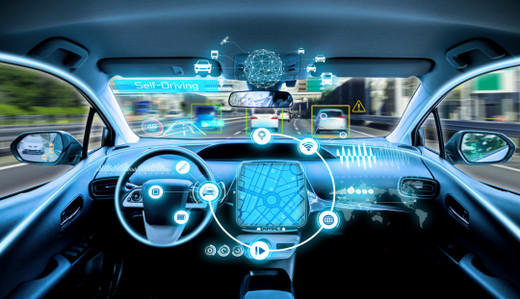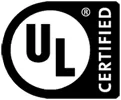The core support of automatic driving: complete analysis of drive-by-wire chassis technology

In the current wave of revolution in the automobile industry, autonomous driving technology, as a disruptive innovation, has gradually become the target of major automobile manufacturers and technology companies. Accompanied by this trend, is the redefinition and evolution of vehicle chassis technology, in which the chassis by wire technology (Steer-by-Wire, Brake-by-Wire, etc.) as a key support technology, is promoting the realization of autonomous driving. This paper will deeply analyze the principle, composition, advantages and application prospect of drive-by-wire chassis technology in the field of automatic driving.
Overview of wire chassis technology
Drive-by-wire chassis technology is a system that transforms traditional mechanical links into electronic controls. It usually includes drive-by-wire steering, drive-by-wire control, drive-by-wire acceleration and other functions, and uses electronic signals to replace traditional mechanical connections to achieve accurate control of vehicle motion states. Compared to the traditional chassis, the drive-by-wire chassis can significantly improve the dynamic performance, comfort and safety of the vehicle.
1. Steering by wire technology
Steer-by-Wire (Steer-by-wire) technology is an important part of the by-wire chassis system. While conventional vehicle steering systems rely on mechanical connections such as steering columns and steering racks, steering-by-wire controls the rotation of the wheels via electric motors. The core of the technology is composed of sensors, actuators and control units.
Sensors: Monitor the driver's steering input in real time and convert it into an electronic signal sent to the control unit.
- Control unit: according to the input of the sensor, data processing, issue instructions to the actuator.
- Actuators: Electric motors execute control instructions to accurately adjust the steering Angle of the wheel.
In this way, steering-by-wire enables more flexible and precise handling, enabling the vehicle to provide an excellent driving experience in all road conditions.
2. Line control motion technology
Brake-by-wire (Brake-by-wire) is an electronic system to control the Brake. The introduction of this technology eliminates the hydraulic and mechanical structure of traditional braking systems, enabling faster and more reliable response to the driver's braking needs.
Line control motion usually consists of the following parts:
Sensors: Monitor the driver's braking intentions, such as brake pedal pressure.
- Control unit: Analyze sensor data, make a comprehensive judgment with the overall state of the vehicle, and decide the braking force.
- Actuator: The motor simulates the braking effect for precise braking control.
With this technology, vehicles can handle braking requests more efficiently, especially in complex traffic environments, which can significantly improve driving safety.
Advantages of wire control technology
Drive-by-wire chassis technology has multiple advantages over traditional chassis Settings, which will gradually promote its widespread application in autonomous vehicles.
1. Space efficiency
The traditional mechanical transmission system usually needs to occupy a large space, and the wire control technology can greatly reduce the system space occupation because of its electronic characteristics. This provides greater flexibility in vehicle design, enabling a more optimized use of space inside the vehicle.
2. Weight reduction
The application of the drive-by-wire system allows the use of lightweight materials and simplified design, which significantly reduces the overall weight of the vehicle. This not only improves the energy efficiency of the vehicle, but also provides a good basis for performance improvement.
3. Precise control
Drive-by-wire chassis technology is excellent in precise control, and can adjust the driving state of the vehicle in real time through electronic signal conversion. This fine control enables the vehicle to remain stable and safe in a rapidly changing driving environment.
4. Easy to change and upgrade
The electronic design of the by-wire chassis makes the maintenance and upgrading of the system easier. Compared to traditional mechanical systems, the drive-by-wire chassis can be optimized through software updates, or parts can be replaced as required, without the need for complex structural changes.
The application prospect of automatic driving
With the continuous evolution of autonomous driving technology, drive-by-wire chassis technology is gradually becoming the core support in this field. In the future, the improvement of the driving experience, the intelligence of the car and the enhancement of safety will depend on the in-depth exploration of the drive-by-wire chassis technology.
1. Intelligent control
In autonomous vehicles, the various behaviors of the vehicle need to be managed through intelligent control systems. The drive-by-wire chassis technology provides accurate control of all dynamic behaviors of the vehicle, enabling the intelligent driving system to accurately perform operations such as driving, lane changing, and emergency braking.
2. Advanced Driver Assistance Systems (ADAS)
The drive-by-wire chassis provides the technical basis for the implementation of advanced driver assistance systems (ADAS), which can achieve more complex driving tasks, such as adaptive cruise and lane keeping, by interworking with devices such as ALS70G163NP250 sensors, radar and cameras. The realization of these intelligent driving functions depends on the efficient feedback and response speed of the drive-by-wire chassis.
3. Integration of vehicle networking technology
With the development of vehicle networking technology, the drive-by-wire chassis will be further combined with cloud computing, big data and other technologies to achieve more intelligent vehicle control and more efficient traffic management. Information sharing between vehicles will enable autonomous vehicles to make decisions based on real-time traffic conditions, improving overall traffic efficiency.
Security and regulatory challenges
Despite the many advantages of drive-by-wire chassis technology, safety and regulatory issues are still the focus of attention in the practice of autonomous driving. Electrical failures, data security, and system redundancy are all technical challenges that need to be addressed. At the same time, with the popularity of drive-by-wire chassis, relevant laws and regulations also need to be constantly updated to adapt to new technological changes, to ensure the safety of driving on the road and the rights and interests of passengers.
In the future, drive-by-wire chassis technology will continue to play its central role in the field of autonomous driving. With the iteration and improvement of technology, more automobile manufacturers will invest in the research and development and application of this field, and promote the progress and innovation of the entire industry.
The Products You May Be Interested In
 |
62051-P2S02 | XFRMR TOROIDAL 15VA CHAS MOUNT | 3312 More on Order |
 |
62045-P2S02 | XFRMR TOROIDAL 10VA CHAS MOUNT | 2430 More on Order |
 |
62044-P2S02 | XFRMR TOROIDAL 10VA CHAS MOUNT | 6048 More on Order |
 |
62035-P2S02 | XFRMR TOROIDAL 7VA CHAS MOUNT | 6642 More on Order |
 |
62034-P2S02 | XFRMR TOROIDAL 7VA CHAS MOUNT | 7938 More on Order |
 |
62025-P2S02 | XFRMR TOROIDAL 5VA CHAS MOUNT | 3924 More on Order |
 |
62021-P2S02 | XFRMR TOROIDAL 5VA CHAS MOUNT | 5058 More on Order |
 |
62012-P2S02 | XFRMR TOROIDAL 3.2VA CHAS MOUNT | 3204 More on Order |
 |
62005-P2S02 | XFRMR TOROIDAL 1.6VA CHAS MOUNT | 7668 More on Order |
 |
62075-P2S02 | XFRMR TOROIDAL 35VA CHAS MOUNT | 7308 More on Order |
 |
62073-P2S02 | XFRMR TOROIDAL 35VA CHAS MOUNT | 5292 More on Order |
 |
70072K | XFRMR TOROIDAL 35VA THRU HOLE | 5634 More on Order |
 |
70054K | XFRMR TOROIDAL 15VA THRU HOLE | 4716 More on Order |
 |
70043K | XFRMR TOROIDAL 10VA THRU HOLE | 5562 More on Order |
 |
70041K | XFRMR TOROIDAL 10VA THRU HOLE | 2826 More on Order |
 |
70003K | XFRMR TOROIDAL 1.6VA THRU HOLE | 2520 More on Order |
 |
62082-P2S02 | XFRMR TOROIDAL 50VA CHAS MOUNT | 4986 More on Order |
 |
62033-P2S02 | XFRMR TOROIDAL 7VA CHAS MOUNT | 6480 More on Order |
 |
62084-P2S02 | XFRMR TOROIDAL 50VA CHAS MOUNT | 7284 More on Order |
 |
62060-P2S02 | XFRMR TOROIDAL 25VA CHAS MOUNT | 23778 More on Order |
 |
70064K | XFRMR TOROIDAL 25VA THRU HOLE | 13758 More on Order |
 |
AC1200 | CURR SENSE XFMR 200A T/H | 2142 More on Order |
 |
AC1015 | CURR SENSE XFMR 15A T/H | 5166 More on Order |
 |
AC1010 | CURR SENSE XFMR 10A T/H | 5963 More on Order |









